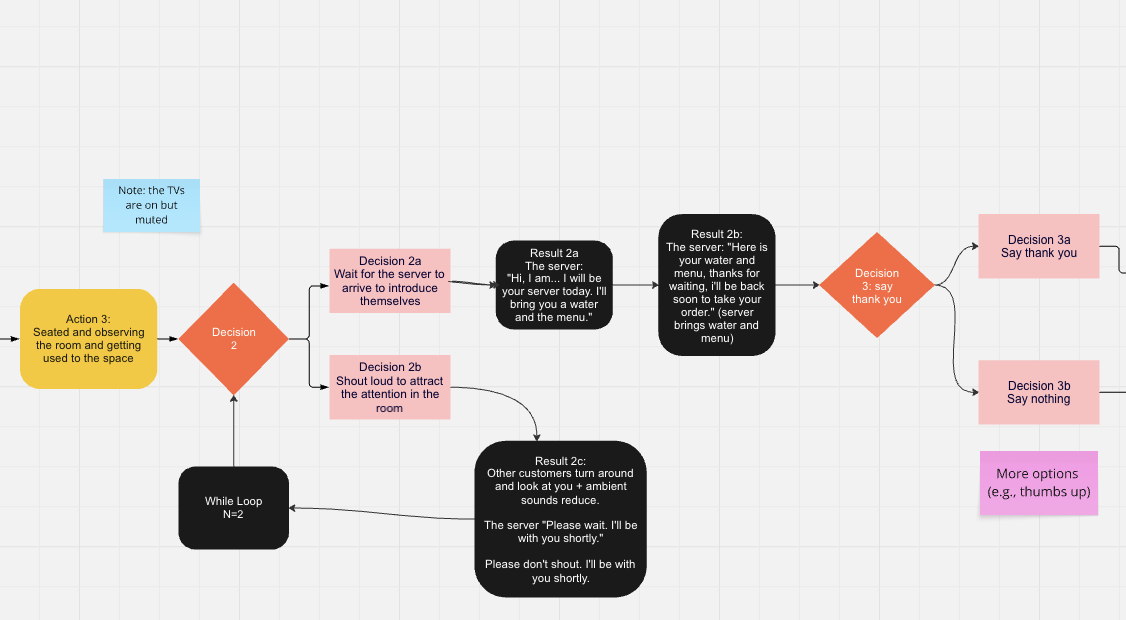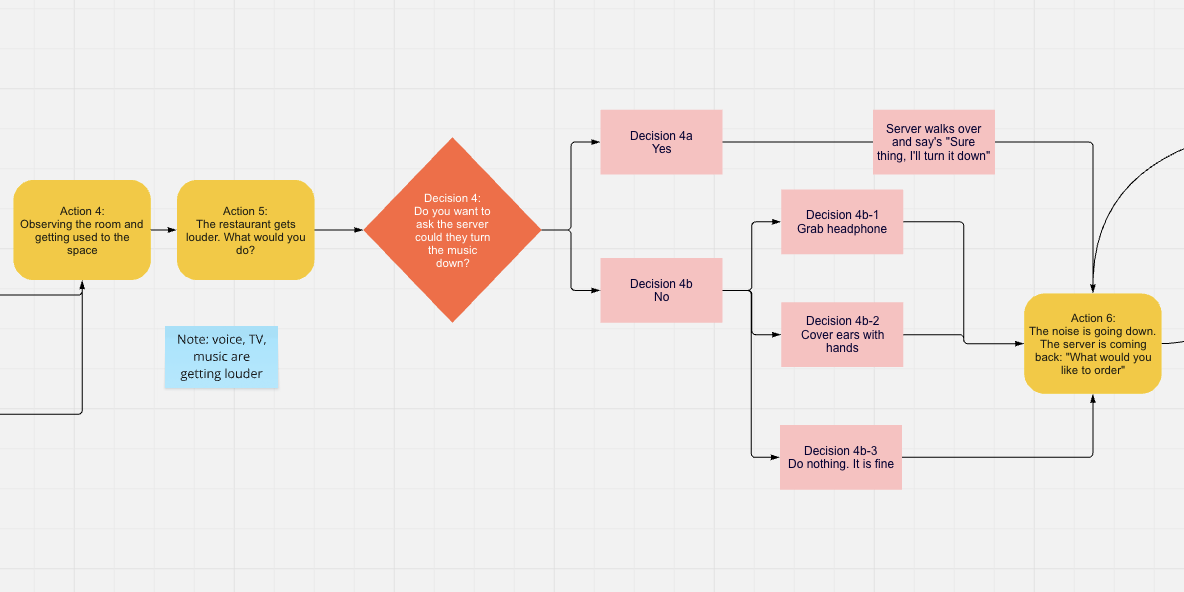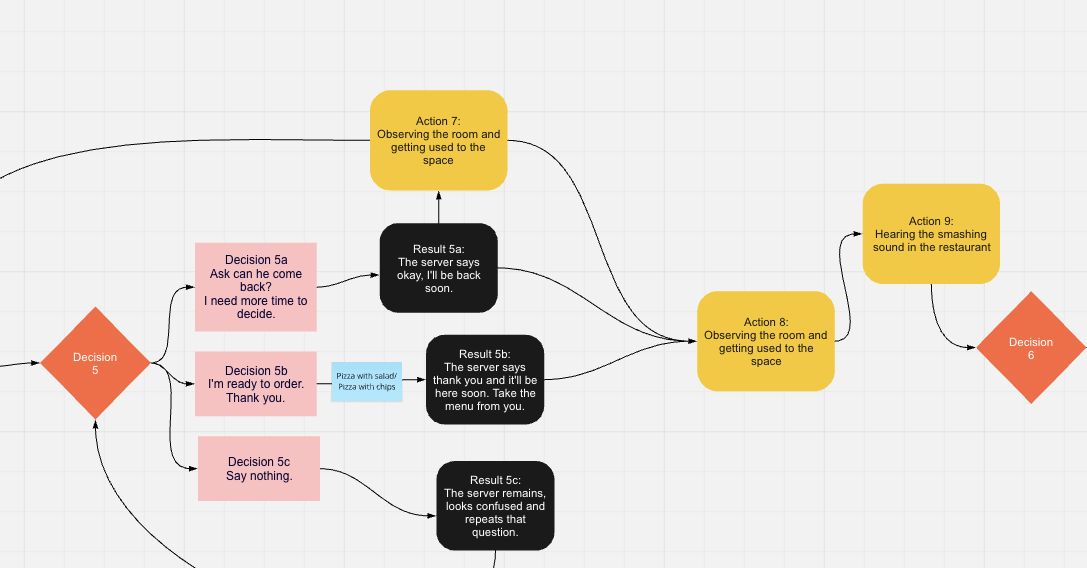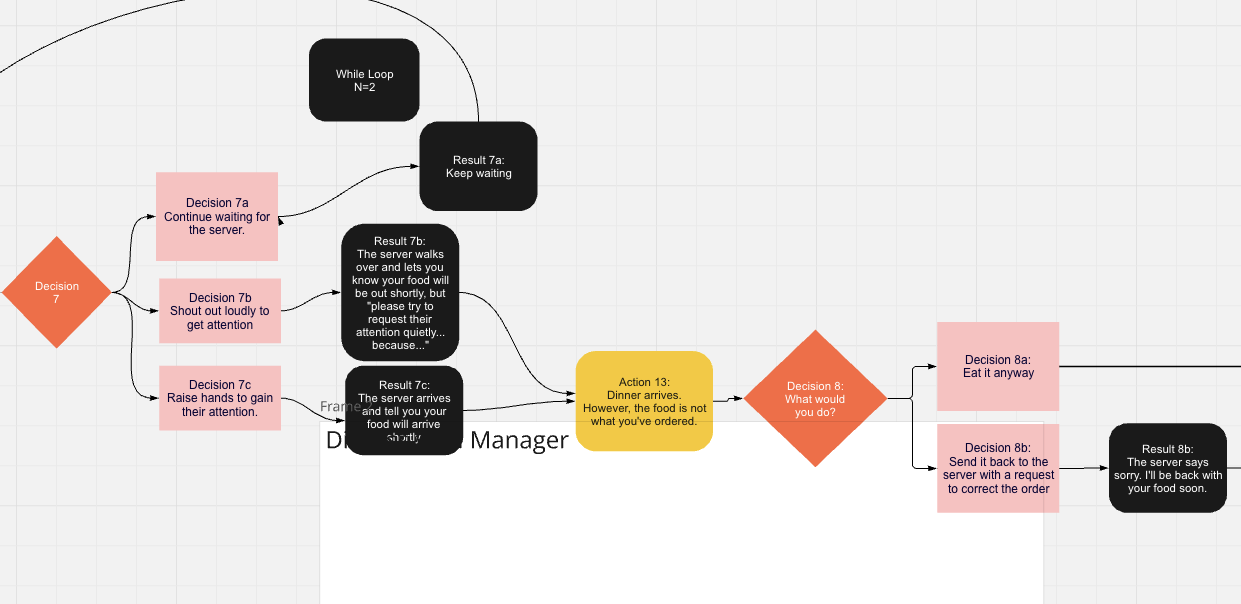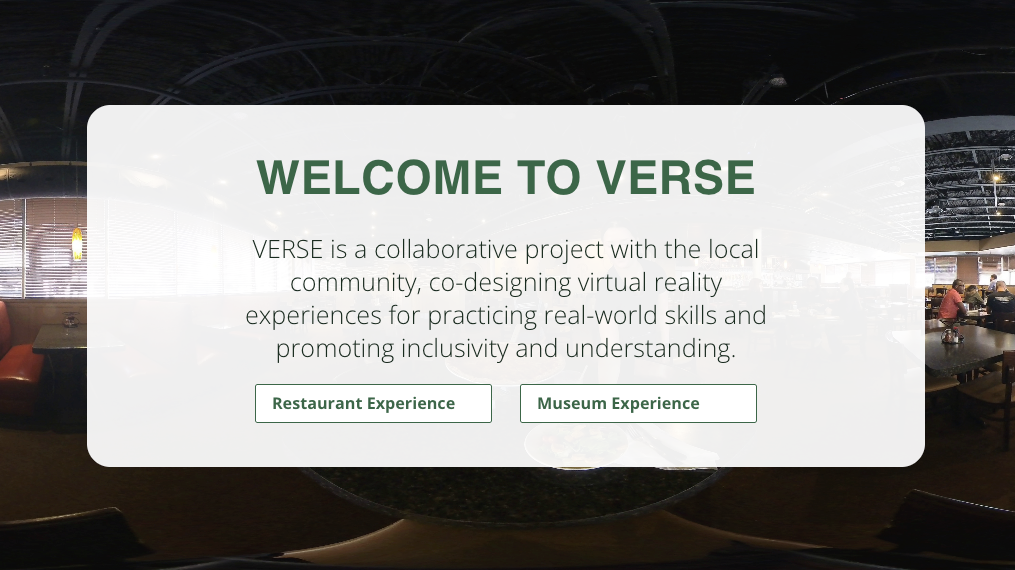-
THE CHALLENGE
Autistic youth face significant barriers when navigating real-world social interactions, particularly in complex environments like restaurants. Traditional social skills training lacks realistic context and often increases anxiety rather than building confidence. The need existed for a safe, judgment-free environment where autistic individuals could practice social encounters at their own pace.
THE INNOVATION
VERSE 1 (Virtual Environment for Realistic Simulated Experiences) created an immersive virtual restaurant environment specifically designed for autistic youth to practice social interactions. This project represented groundbreaking work in combining virtual reality technology with autism-focused inclusive design principles.
MY ROLE & CONTRIBUTIONS
As Instructional Designer, I coordinated under the supervision of my advisor the educational strategy and managed complex stakeholder relationships. My responsibilities included designing user-centered learning experiences for specialized population needs, coordinating collaboration between autism specialists and restaurant partners, and facilitating iterative design improvements based on authentic user feedback.
PROJECT CONTEXT
This research initiative was developed my Lab and owned by the University of Florida College of Education as part of their broader commitment to innovative autism support research and community-partnered academic work.
-
COMPLEX PARTNERSHIP ORCHESTRATION
Multi-Stakeholder Coordination Challenge
Project required alignment across diverse organizations with different priorities:
University of Florida College of Education-ELTL (research objectives)
Local autism support institution (community advocacy and expertise)
Parent/caregiver groups (practical application concerns)
Piesanos Restaurant (business operations and authenticity)
Technology development team (technical implementation)
Strategic Communication Management
Developed systematic communication framework to manage competing interests:
Individual stakeholder meetings to understand underlying concerns
Shared project documentation for transparent decision-making
Regular progress updates tailored to each stakeholder group's priorities
Conflict resolution protocols for design disagreements
Change management process for scope adjustments
Partnership Development Approach
Restaurant Partner Acquisition:
Leveraged professional and personal networks to identify potential partners
Developed business case demonstrating community value and minimal disruption
Negotiated filming agreements and location access protocols
Maintained ongoing relationship through multiple design iterations
Community Engagement Strategy:
Positioned parents and autistic youth as co-designers rather than research subjects
Facilitated authentic community input throughout development process
Ensured autism specialist expertise guided design decisions while respecting lived experience
-
DESIGN TRANSFORMATION
Before: Overwhelming sensory environment preventing learning focus
After: 90+% user satisfaction with accessible, supportive experience
STAKEHOLDER SUCCESS
Secured restaurant partnership through network leveraging
Aligned competing priorities across 5 different stakeholder groups
Managed complete design pivot based on user feedback
Maintained community partnership through multiple iterations
-
EVIDENCE-BASED DESIGN
Initial approach failed user testing due to sensory overwhelm
Led complete redesign prioritizing accessibility over realism
Implemented simplified visuals, controlled audio, slower pacing
Created multiple practice pathways for different learning styles
INCLUSIVE METHODOLOGY
Positioned autistic community as co-designers, not subjects
Integrated specialist expertise with lived experience
Built scaffolded skill progression respecting individual pace
Validated design through authentic user testing
-
Complex stakeholder coordination and conflict resolution
Accessibility-first instructional design
Virtual reality educational applications
Specialized population learning design
Evidence-based iterative improvement
Community-partnered research collaboration
-
UNIVERSITY OF FLORIDA COLLEGE OF EDUCATION RESEARCH CONTRIBUTION
Institutional Context
VERSE 1 represents the Emerging Technologies Research Lab (ETRL)'s commitment to innovative, community-partnered research addressing real needs of autistic individuals and their families.
My Contribution to the Research Initiative
Within this institutional framework, I contributed instructional design expertise, stakeholder coordination under the supervision of my Advisor (Nigel Newbutt), and user-centered design methodology that enabled the project's successful completion and community impact.
VERSE created an immersive virtual restaurant environment where autistic youth could practice social interactions at their own pace.

